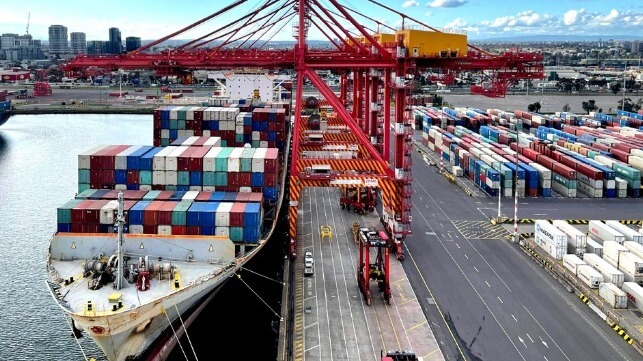Australian Government Names Task Force to Setup Strategic Fleet

Australia’s Labor Government, which took office in May 2022, is following through on its campaign promise to launch a strategic national fleet of commercial cargo ships. Despite criticism from the shipping industry which has questioned the effectiveness of the strategy the government today announced a new task force to guide the establishment of Australia’s Maritime Strategic Fleet.
As a candidate, now Prime Minister Anthony Albanese in January said that if elected his labor government would strengthen Australia’s economic sovereignty and national security by building an independent strategic fleet to secure ongoing access to fuel supplies and other essential imports. Albanese said that more than most nations, Australia is dependent on seaborne trade.
During the campaign, they blamed the government of Scott Morrison for the steady decline in Australia’s national fleet. While more than 6,000 vessels arrived in Australian ports last year, the government says the Australian-flagged fleet had shrunk to just 14 vessels over the past three decades. There is also an increasing shortage of skilled deck and engineering officers to man the ships. The disruptions to shipping patterns during the pandemic further highlighted what the government said is the dangers to the Australian supply chain.
“Australia relies on shipping to support our economic and social well-being, with an incredible 99 percent of the volume of our goods trade moved by sea,” said Catherine King, Infrastructure, Transport, Regional Development and Local Government Minister announcing the details of the task force. “It is essential that we make sure Australia continues to have a robust supply chain so we get food, fuel, medical supplies, and other critical cargo to support Australian industries, the community and protect our national interest.”
The mandate for the Strategic Fleet Task Force is to guide the government on how to establish Australia’s fleet as quickly as possible. It will also provide advice on what legislative or regulatory reforms are necessary to support the Strategic Fleet and Australian shipping. The task force is chaired by John Mullen who worked in the transport and infrastructure industry for 20 years along with Angela Gillham, a shipping policy specialist with Maritime Industry Australia, that has been a strong advocate of the fleet. Dr. Sarah Ryan, a leader in the energy industry with Woodside Energy, Paddy Crumlin from the Maritime Union of Australia, and Major-General Jason Walk from the Department of Defense will round out the task force.
The task force will deliver its advice to the government in two phases, with the first phase a report that will include industry input on high-level strategic objectives expected by the end of the year. The second phase will identify ship options and other needs for a strategic fleet and is expected to be complete by June 2023.

that matters most
Get the latest maritime news delivered to your inbox daily.
Under the government’s plan, the strategic fleet will be made up of up to 12 vessels. They will all be Australian flagged and crewed and maintain commercial operations. They would also be available to the government in times of strategic emergencies.
While supporting efforts to enhance the national fleet, the shipping industry has questioned the government’s tactics. Shipping Australia representing the industry provided comments to Australia’s Productivity Commission saying that there were better methods to enhance the Australian maritime industry. They pointed to estimates that put the cost of a vessel having an Australian crew at between A$5 million and A$7 million a year more than foreign-flagged vessels and questioned if shippers would place their cargoes on Australian ships. The organization also pointed to the U.S.’s success at chartering ships during the Gulf War saying it was more effective than maintaining a national fleet. The organization is calling for workforce training and education to support the merchant marine.
